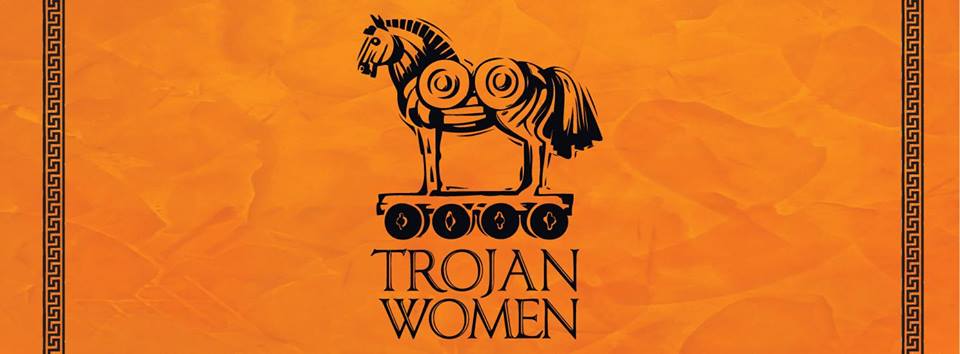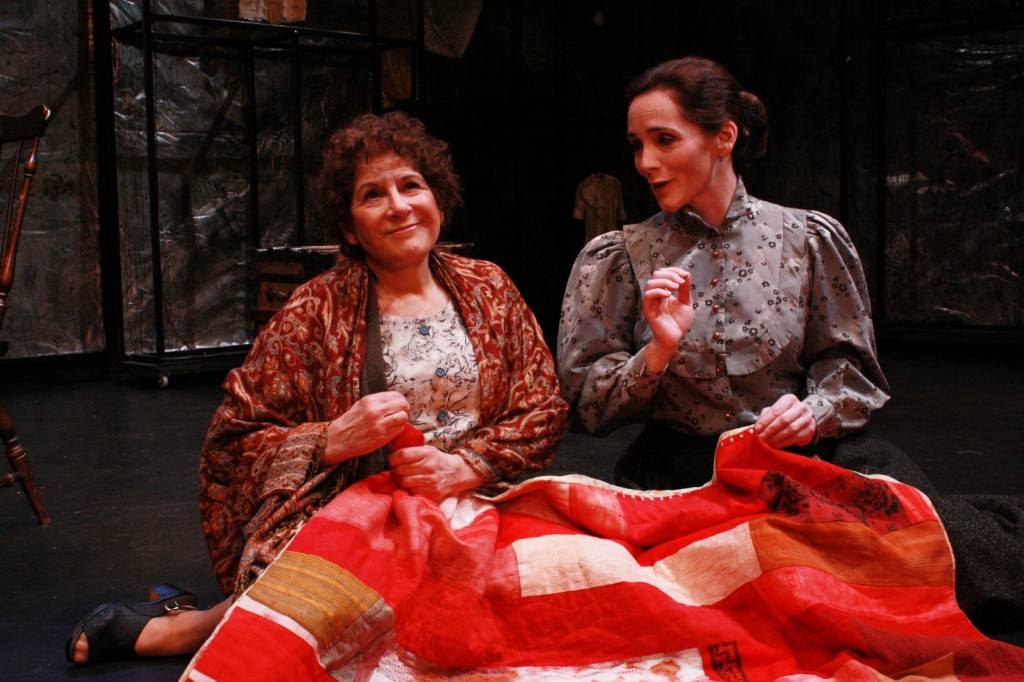 Presented by Theatre@First
Presented by Theatre@First
Written by Euripides
Translated by Edith Hamilton
Directed by J. Deschene
Nov. 14-22, 2014
Unity Church of Somerville
Somerville, MA
T@F on Facebook
Review by Kitty Drexel
In the interest of full disclosure and transparency, I did audition for this play and was not cast. It is my firm belief that only a narcissistic ass would allow this to taint their review.
“Men are afraid that women will laugh at them. Women are afraid that men will kill them.”
(Somerville, MA) The Trojan Women was first produced in 415 BCE but might as well have been written last year. In it, the women of Troy (now Turkey) are grieving over their beloved fallen city, and the men who have died defending the city from the Greeks. Euripides so captured the trauma of a country torn by war, that his play has been made into a very famous 1971 film (featuring the alluring Katharine Hepburn as Hecuba, a brave and unusual choice) and has survived several adaptations and manipulations. The translation by Edith Hamilton remains the most popular for staging. The movie featuring Hepburn, Irene Papas, and Vanessa Redgrave, etc. is a classic. Continue reading
